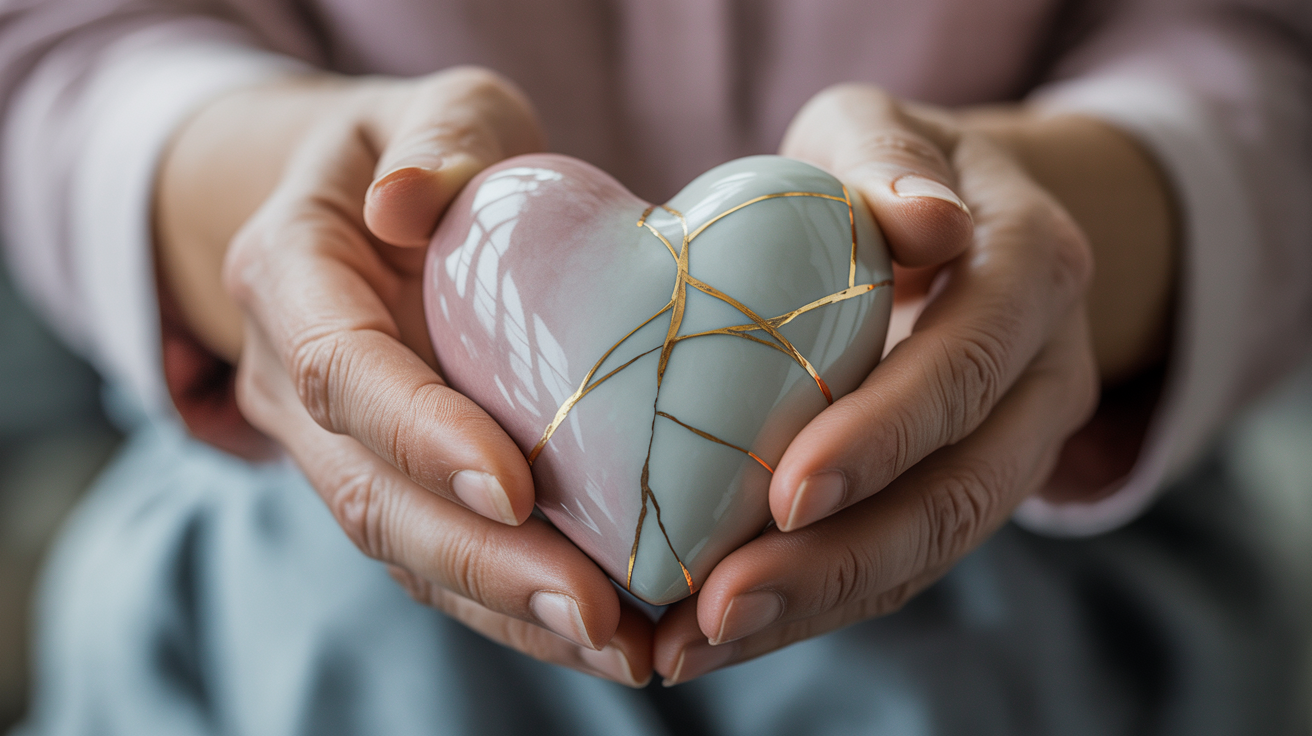
The Dark Side of People Pleasing: What It Is, Why You Do It, and How to Stop
You’re the one everyone goes to. The reliable one. The helper. The “nice” one who never says no. But behind that smile and constant yes lies something deeper: people pleasing. And behind closed doors, you’re exhausted, burnt out, and if you’re honest with yourself, you don’t even know who you are anymore.
What if I told you that what you call “being nice” is actually something much darker—and no one ever told you the real cost? This is the dark side of people pleasing, and it’s time you finally saw it for what it really is.
The Hidden Truth About Being “Nice”
We’ve romanticized being the good one. The person who always says yes, keeps the peace, and makes life easier for everyone else. Society applauds your kindness and calls it admirable.
But no one talks about what people pleasing does to you. What it costs you. What it slowly takes away while everyone’s celebrating your selflessness.
You say yes to avoid guilt. You suppress your anger to avoid conflict. You abandon your needs to be liked. And the world calls it generous.
But you’re the one losing sleep, losing clarity, and slowly losing yourself.
Here’s the uncomfortable truth: people pleasing is not about generosity. It’s about fear.
Fear of being rejected. Fear of being disliked. Fear that if you finally speak up, people will leave. And that fear shapes your entire identity, creating a version of yourself that feels safe but isn’t real.
Where People Pleasing Really Begins
People pleasing doesn’t start in adulthood—it’s a defense mechanism that began early, long before you even knew what it was.
Maybe you grew up in a home where love was earned, not freely given. Where saying no meant punishment. Where expressing your needs made you feel like a burden.
So you adapted. You learned to:
- Keep quiet when you disagreed
- Read the emotional weather in every room
- Understand that approval equals safety
- Believe that being easy to love meant being easy to manage
But here’s the dark truth: That version of you—the agreeable, over-functioning one—wasn’t born from authenticity. It was built on survival.
While it may have protected you back then, it’s destroying you now.
The Warning Signs You’re Trapped in People Pleasing
Let’s talk about how people pleasing really shows up—the stuff no one admits out loud:
You Apologize Constantly
Even when you’ve done absolutely nothing wrong. You feel guilty for existing, for needing things, for simply taking up space in the world.
You Panic When Someone’s Disappointed
Their discomfort feels like genuine danger. You replay the moment obsessively, wondering how to fix it—even when it wasn’t your fault to begin with.
You Say “Yes” When Everything Screams “No”
You betray your limits, your time, and even your body just to avoid that look of disapproval. Your internal compass gets completely ignored.
You Feel Deep Resentment But Say Nothing
You give and give, silently wondering why no one ever gives back. But when anger rises, you shove it down because being angry doesn’t fit your “nice” image.
You’ve Lost Touch With Your Own Desires
Your needs have been buried under everyone else’s for so long that you’ve forgotten they even exist. You genuinely don’t know what you want anymore.
These aren’t just quirks or personality traits. They’re warning signs that you’ve been performing instead of living.
Why Breaking Free Feels Impossible
Here’s what no one tells you about people pleasing: it feels good at first.
You get praise, validation, and feel needed. You feel important and safe. But slowly, you start to erode from the inside out.
You lose the ability to say what you mean. You become terrified of honesty. You confuse peacekeeping with actual peace.
And deep down, you know this version of you isn’t real. It’s a mask you built to survive, but now it’s suffocating you.
The worst part? When you finally try to take off the mask, people don’t like it.
Because people got used to the version of you who never complained, never pushed back, and gave more than you had. When that changes, some people will leave.
That’s the real cost of reclaiming yourself—and it’s terrifying.
How to Escape the People Pleasing Trap
Breaking free requires starting small and preparing to feel uncomfortable. Here’s your roadmap:
Step 1: Pause Before Saying Yes
Just breathe. You don’t owe anyone an instant answer. Try saying, “Let me get back to you.” Give yourself time to feel what you actually want.
Step 2: Let the Guilt Come—and Pass
Yes, you’ll feel guilty. Yes, you’ll want to take it back. But guilt isn’t proof that you’re doing something wrong—it’s proof that you’re doing something new.
Step 3: Set Small Boundaries
Start with tiny phrases that change everything:
- “I’m not available tonight”
- “I need some time to think”
- “I can’t take that on right now”
Step 4: Get Curious About Your Fear
Ask yourself: “What am I afraid will happen if I say no?”
Usually, it’s not about the specific task—it’s about your entire identity and self-worth.
When you realize that love doesn’t require you to betray yourself, you start to become free.
The Real Cost of People Pleasing
Here’s the part no one talks about: people pleasing steals your life.
Every yes you don’t mean is a no to yourself. Every boundary you avoid is a message to your nervous system that you don’t matter. Every fake smile disconnects you from who you really are.
You might be praised and appreciated, but you’re also:
- Emotionally numb
- Completely exhausted
- Feeling unseen and unknown
You’ve been showing up for everyone except yourself.
This isn’t about becoming mean or selfish. It’s about being real, being whole, and being allowed to take up space in your own life.
What Happens When You Stop People Pleasing
When you stop apologizing for existing, stop smiling through pain, and stop saying yes out of fear, you’ll get pushback.
Some people might leave. But the ones who stay will be the ones who love the real you—not the role you’ve been playing.
You’ll have awkward moments. You’ll feel lost at first. But then something beautiful happens:
- You start breathing deeper
- You sleep better
- You speak with more clarity
- You feel more authentic
And one day, you’ll say no without guilt. You’ll say yes and actually mean it. You’ll feel anger and honor it instead of hiding it.
That’s what freedom looks like.
How to Rediscover Your Authentic Self
People pleasing doesn’t just steal your voice—it steals your sense of self. The work now isn’t just learning to say no; it’s remembering who you are.
Ask yourself:
- Who am I when I’m not trying to be liked?
- What do I enjoy when no one’s watching?
- What does my voice sound like when I stop editing myself?
Practical Steps to Reconnect With Yourself
Journal Daily with these prompts:
- What did I pretend to be okay with today?
- What did I actually want?
- What gave me energy? What drained me?
Sit in Silence regularly. No music, no notifications. Just you, breathing and being present with yourself.
Tell One Truth Each Day:
- “I’m tired”
- “I disagree”
- “I need time”
- “I’m not okay today”
These aren’t just sentences—they’re steps home to yourself.
What to Expect When You Change
When you stop people pleasing, not everyone will cheer. Some people will guilt you. Others will distance themselves. Some will say, “You’ve changed.”
And they’ll be right. You have changed.
You’re no longer tolerating what once felt normal. You’re no longer choosing peace for them while living in chaos for yourself.
But you’ll also gain something irreplaceable: clarity, confidence, and genuine connection with your authentic self.
You’ll realize that the real you was always worth showing up for.
Reframing the Fear
When fear creeps in, ask yourself:
- “If I say yes out of fear, what part of me will I have to abandon?”
- “If I say no with honesty, what part of me will I protect?”
Remember: You’re not here to be everyone’s solution. You’re here to be someone real.
Real people aren’t always agreeable. Real people don’t always please others. Real people don’t twist themselves to fit into places they’ve outgrown.
You don’t need everyone’s approval. You just need your own.
Breaking Free From the “Nice” Person Mask
People pleasing looks like love. It sounds like kindness. It feels like connection.
But too often, it’s just a mask.
A mask you put on so the world wouldn’t reject you. But now, you’re learning to take it off.
You don’t have to be the one who always says yes. You don’t have to be the one who never needs anything. You don’t have to be the “nice” one to be loved.
You just have to be you.
Your Path to Authentic Living
The next time you feel that familiar urge—to smile when you’re not okay, to say yes when your body says no, to disappear so someone else can be comfortable—pause.
Check in with yourself and ask: “Is this love, or is this fear?”
If it’s fear, choose differently.
Because your truth deserves to be heard. Your boundaries deserve to be honored. And you deserve to be free.
People pleasing might feel safe, but authenticity is where real peace lives. It’s time to stop performing and start living as the person you were always meant to be.
The world doesn’t need another people pleaser. It needs the real, unfiltered, beautifully imperfect you.








